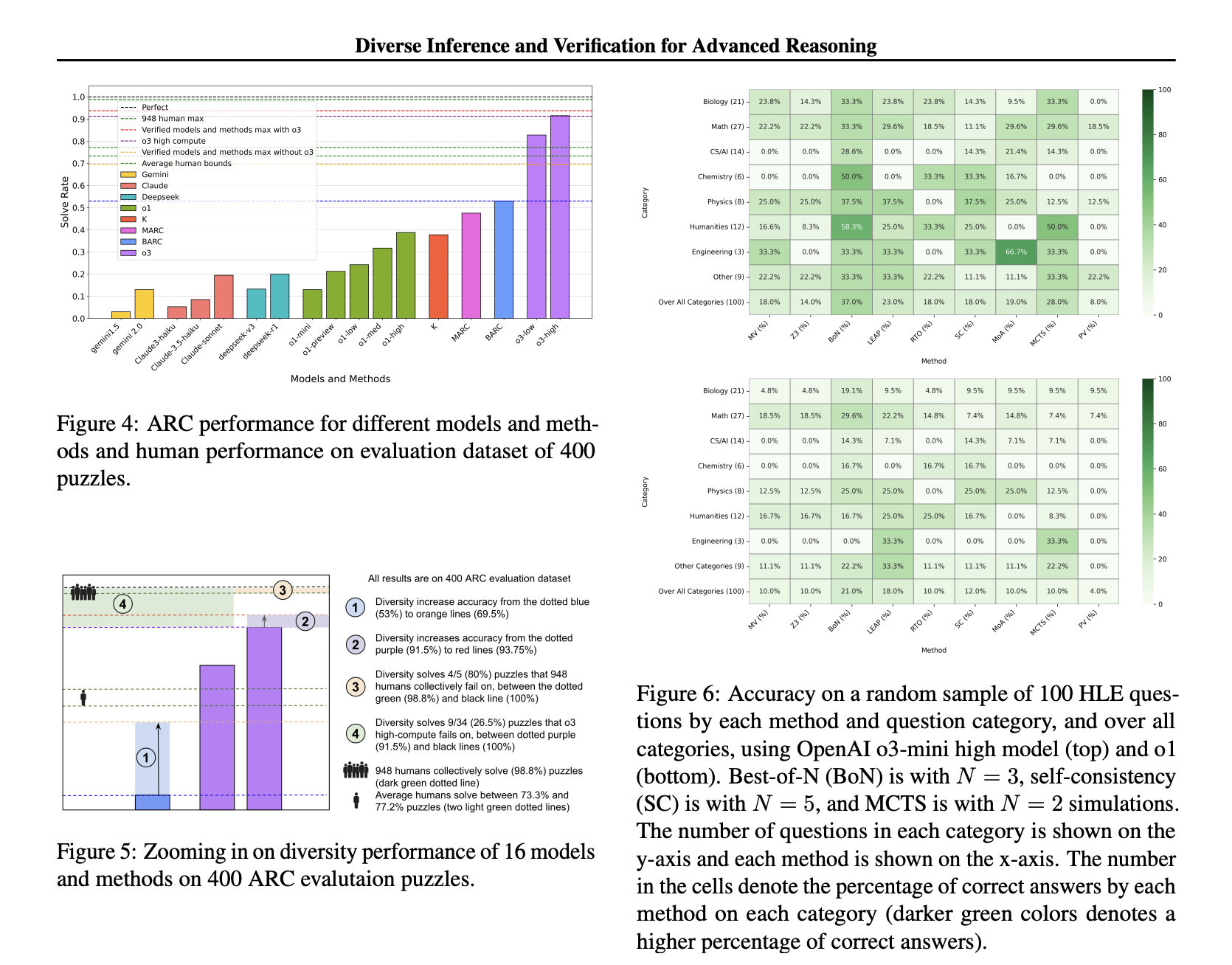
Innovative AI Solutions for Problem-Solving
Understanding AI’s Capabilities
Large language models excel at problem-solving, mathematical reasoning, and logical deductions. They have tackled complex challenges, including mathematical Olympiad problems and intricate puzzles. However, they can still struggle with high-level tasks that require abstract reasoning and verification.
Challenges in AI Reasoning
One key issue is ensuring the correctness of solutions, especially for multi-step mathematical problems. Traditional AI models handle simple tasks well but falter with abstract concepts and formal proofs. To improve accuracy, researchers are developing advanced techniques that combine various methods for better verification.
Practical Techniques for Improvement
Several effective techniques have emerged to enhance mathematical reasoning:
– **Zero-shot learning** allows models to tackle problems without prior training.
– **Best-of-N sampling** picks the most accurate answer from several options.
– **Monte Carlo Tree Search (MCTS)** simulates potential solutions.
– **Theorem-proving software (like Z3)** helps verify logical statements.
Despite their potential, these methods often lack strength in more complex scenarios, leading to the development of a comprehensive framework that integrates multiple strategies.
Collaborative Research Breakthroughs
A team from prestigious institutions (Boston University, Google, Columbia University, MIT, Intuit, and Stanford) has introduced a new approach combining various inference techniques with automated verification. This method employs:
– **Test-time simulations**
– **Reinforcement learning**
– **Meta-learning**
By diversifying the techniques used, the system increases both accuracy and adaptability to different problem complexities.
Verification Methodology
The research focuses on verifying solutions for mathematical and logical challenges through automation. For instance, they applied eight distinct methods to convert English solutions into formal proofs, ensuring correctness. For complex puzzles, synthesized code solutions were validated through unit testing against training examples.
Significant Performance Improvements
This innovative approach led to impressive results:
– **IMO problems**: Accuracy jumped from 33.3% to 77.8%.
– **HLE questions**: Accuracy increased from 8% to 37%.
– **ARC puzzles**: Achieved an 80% success rate for previously unsolved challenges.
These results demonstrate that combining different inference models significantly enhances AI’s problem-solving capabilities.
Transforming AI Reasoning
The study marks a major advancement in AI reasoning by integrating diverse inference strategies with automated verification. This scalable solution enhances AI’s ability to tackle complex problems, paving the way for more sophisticated reasoning models in the future.
Get Involved and Stay Updated
Check out the research paper for detailed insights. Follow us on Twitter, and join our growing ML community on Reddit.
If you’re looking to enhance your business with AI, consider the following steps:
– **Identify Automation Opportunities**: Find areas where AI can improve customer interactions.
– **Define KPIs**: Ensure measurable impacts from your AI initiatives.
– **Select an AI Solution**: Choose customizable tools that meet your specific needs.
– **Implement Gradually**: Start small, analyze data, and expand wisely.
For advice on AI KPI management, contact us at hello@itinai.com. Stay updated with AI insights on our Telegram channel or follow us on Twitter @itinaicom.
Explore how AI can transform your sales processes and customer engagement at itinai.com.



























